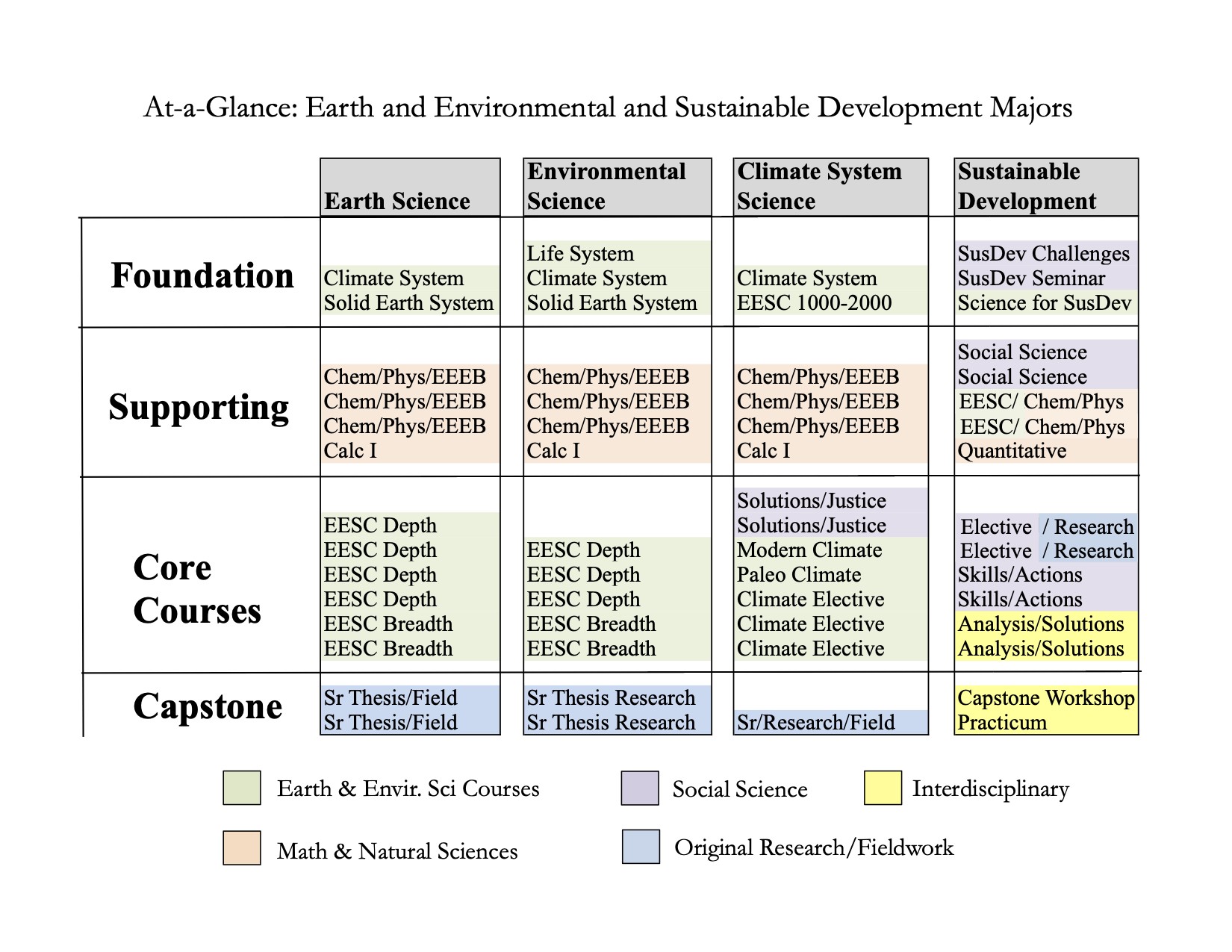Degree Requirements
The undergraduate major in Earth and Environmental Sciences provides an understanding of the natural functioning of our planet and considers the consequences of human interactions with it. The program instills a comprehension of how complex earth systems work at a level that will encourage students to think creatively about how to address multidisciplinary environmental problems.
The program for concentrators serves students who want more exposure to earth and environmental science than is provided by introductory-level courses. It is designed to give students an understanding of how the Earth works and an introduction to the methods used to investigate earth processes, including their capabilities and limitations.
In addition to the environmental science and earth science concentrations, the department sponsors a special concentration in Environmental Science for Environmental Biology majors.
Students interested in declaring a major or concentration in our department can find more info on our Prospective Students page.
Note: 1000-level DEES courses DO NOT count towards fulfilling the necessary degree requirements, and EESC 4930 Earth's Oceans & Atmosphere also does not count towards fulfilling the depth or breadth requirement.
You can use the below chart to compare the three DEES majors and the Sustainable Development major.
